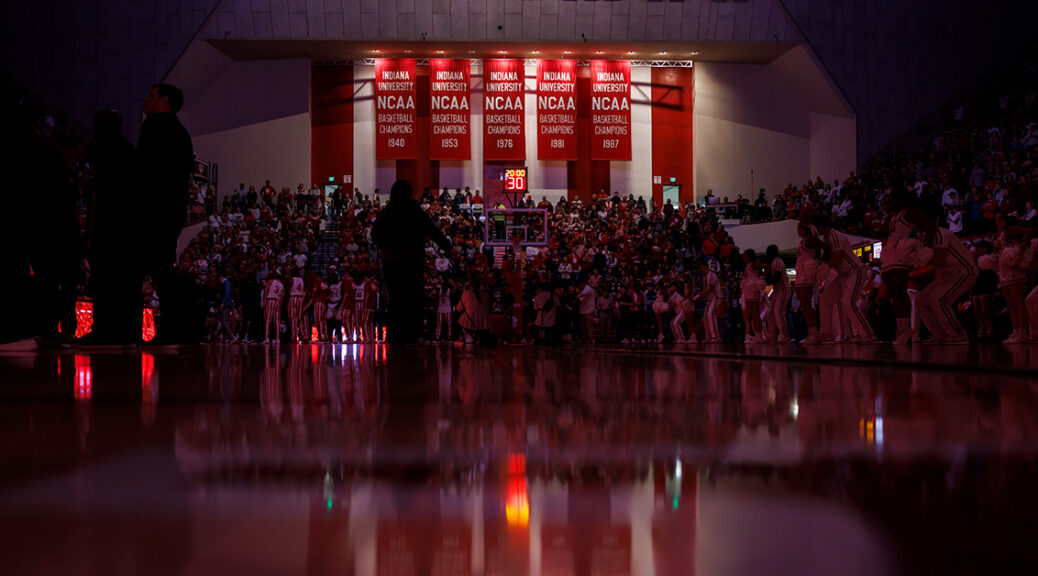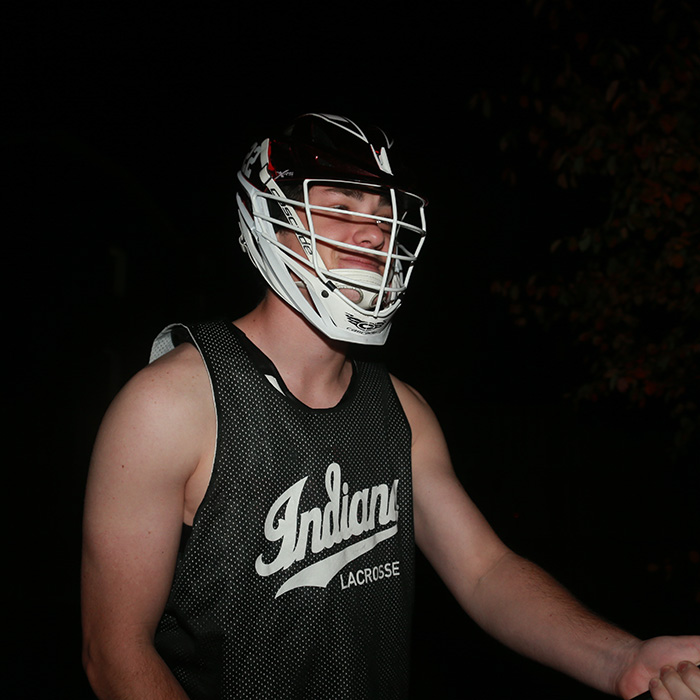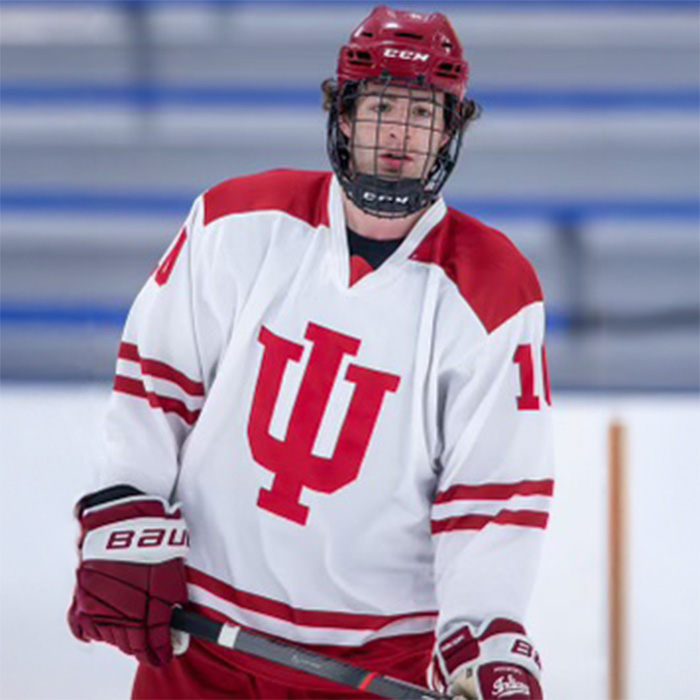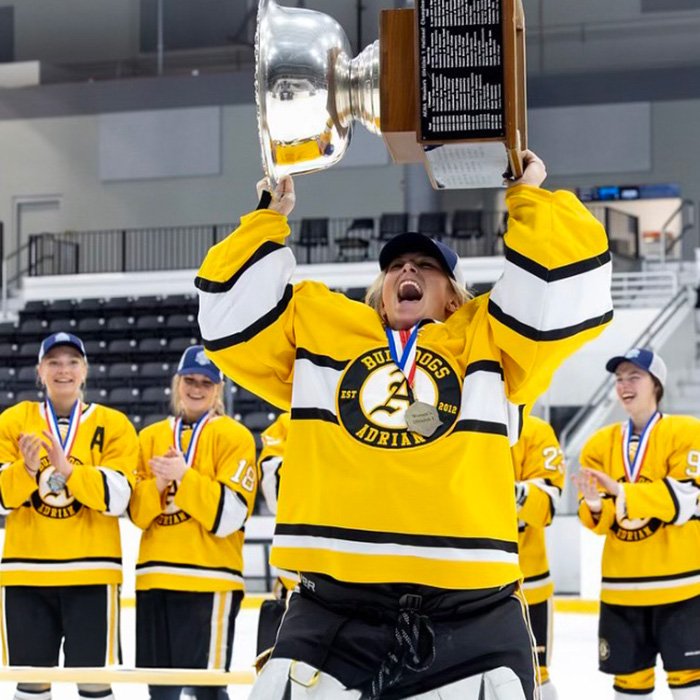
IU’s Forgotten Club Sports and Their Athletes, D1 in Their Own Right
By Jon-Duke Rogers, Sterling Thomas and Kaela Winfield
BLOOMINGTON, Ind. (November 5, 2024)
You’ve just won the D1 women’s hockey national championship—the first time in your school’s history that a women’s team has achieved this. It’s the highlight of your life. You’ve trained since you were five years old, often as the only girl on a team of boys. You’ve driven twenty hours just to be seen by a female scout, as scouts rarely come to watch girls play. Finally, this is the moment you’ve been waiting for. While this moment signifies a victory for you and your team, it also exposes a gap in how women’s sports are treated. The men’s team had also won, and for them there was a parade; for them, there was a statue. That is the truth Taylor Kinkade had to share with us.
Women’s sports are at an all-time high in terms of interest as athletes like Caitlin Clarke pioneer and usher in a new era. However, that is not the issue at hand; the issue is Indiana University’s unwillingness to be pioneers themselves. Despite offering 24 D1 sports, a noticeable gap still exists: men’s and women’s lacrosse, men’s and women’s hockey, and men’s volleyball are missing. Ironically, each of these sports is more widely represented across Indiana colleges than water polo, which IU does offer as a D1 sport. The main issues that arise when these sports are offered only as club sports are the lack of mental health care, funding, and educational support.
Richie Fleming, a senior on IU’s club lacrosse team, echoes the same attitudes as almost all of the club athletes we talked to; they do not attend Indiana University because it has a great program for the sport they are interested in or because they want to go pro. They play club sports because that is their passion.

When asked if not having NIL opportunities affected his motivation or commitment to his sport in any way, Fleming stated, “No, if I were getting paid I would be happier to do it, but I play lacrosse because I enjoy it, not for any compensation.” He continued to explain that there isn’t really a point in playing a club sport if you don’t enjoy it, as there isn’t much hope for a professional career or anything else.
Fleming believes that the NIL ruling has not really impacted the club sport environment at IU, claiming it’s always been an uphill battle. It is the clubs’ responsibility during the season to handle everything themselves: raising money, covering fees, and managing expenses, without support from the university. “We get it done, whether that means having to practice in the rain or beg people to donate—we always find a way,” Fleming states.
The funding of club sports is a key aspect of their mistreatment. The IU Club Sports Association gives each sport a small stipend, and in the case of the lacrosse team, it only covers around two months of practice; for the men’s hockey team, it covers five ice skating sessions. The school claims this money is the perfect amount, yet it doesn’t even last the preseason for each sport, often because they have to rent practice spaces.
Fleming believes that IU could be more flexible with funding for the teams while also providing them access to better facilities. “There aren’t many indoor practice facilities, so they are required to take what they can get. Sometimes practices go from midnight to 1:30 A.M. The staff that runs these events is also unreliable, sometimes causing games to have to be relocated or just canceled altogether, which is bad because it’s other club sports that are paying to travel here, and then we just have to say sorry and hope we can reschedule and they can get some of their money back.”
Ryan Berke, a sophomore at IU, played professional hockey for a year after high school. He loved it, but in the end, he knew he’d have to go to college. IU’s Kelley School of Business is one of the best in the country, so there was no hesitation—he knew that’s where he wanted to go. He was crushed when he found out there was no D1 hockey team at IU. He decided to join the club team and has since become one of the most active members and a key player in most games.
“We play at a local ice rink; it’s not small but also not large, yet we almost always sell out. That’s the craziest part—the issue isn’t that there is no interest; it’s that higher-ups just choose to act like no one cares and that we are just another one of the hundreds of clubs at IU,” Berke explained.

The issue of hockey at IU is often a topic of discussion. Research shows that IU sells nine different styles of officially licensed hockey jerseys, each costing a minimum of $100, yet there is no official IU team, and the club team receives none of that revenue. Jerseys are a challenge in themselves; the club team has to design and produce their own to sell them for profit. Each design, however, must be pre-approved and inspected by IU athletics, along with a fee paid to the IU Club Sports Association for the use of IU symbols.
Both Berke and Fleming were asked about their experience as club sport athletes at IU. Overall, they are not given the same access to support as IU athletes: they receive no special accommodations, no extra food, no special tutors, and, worse, they are told that it’s up to the professors’ discretion if they are allowed to miss class. They are required to fill out a form similar to IU athletes to inform teachers of missed classes. However, unlike IU athletes, professors are allowed to deny the form and mark them as absent and unexcused.
“That’s another thing that just isn’t fair. I know plenty of athletes, and the amount of special care they get is insane. I often end up tutoring the other guys, and we have big study sessions because, of course, school comes first. It’s just not fair that we can do everything right, and then it’s in the hands of the teacher,” Berke says.
Taylor Kinkade is a D1 women’s hockey player at Adrian College in Michigan. Despite the school’s Division 3 status, the hockey teams compete at the highest level. Recently, she and her team won the National Championship and were honored with a ring ceremony. However, their celebration pales in comparison to that of their male counterparts, who were recognized with a ring ceremony, a rock statue, and a parade. According to Kinkade, this unfair treatment is nothing new, as she says, “Growing up, I’m used to being the only woman. This time, it just hurt a lot more because it wasn’t a matter of ‘They are just better than you’; it was a matter of ‘We just care more about them for doing the same thing.’” Kinkade shared her experience as a woman in a male-dominated sport, highlighting several differences. For example, the women’s team has a two-stick limit, while the men’s team has an unlimited stick policy. Additionally, she noted that the women had to drive 18 hours to compete in a tournament, whereas the boys flew to their tournament last year.

Kinkade believes that right now is the perfect time for women’s sports to be awarded for their dedication to their sport, as all eyes are on them. She and her team did what people deemed impossible and wanted to keep the momentum going. Recently, in August 2023, the Professional Women’s Hockey League was founded. As the first professional women’s hockey league, its creation has sparked the conversation of making women’s hockey a bigger deal at larger universities.
“Bigger schools decide that having women in sports is too hard, so they shut it down at the root. We can’t have the ‘Why is there not a women’s hockey or lacrosse team’ conversation if there is never a hockey or lacrosse team to begin with,” Kinkade stated.
By demoting D1 sports to club sports at IU, not only does it impact the athletes directly by not offering them the proper support, whether financially or mentally, but it also impacts women’s sports more heavily as a whole. By choosing to remove themselves from the conversations surrounding those sports entirely, IU is not only leaving their students at a disadvantage—they are choosing to stay behind in an era of massive change.
It is the job of Indiana University to treat all sports as equal and to offer all D1 sports in order to create a safe and equal environment for all athletes, regardless of gender. It starts at the root, and in order to be on the same playing field and have women’s equality in sports, we first have to have equality in what sports are represented at IU.
In mid-October, everyday students on Indiana University’s campus were asked how they personally viewed the life college athletes. The students shared their perspectives on the challenges, expectations, and lifestyles they believe college athletes experience at IU.

